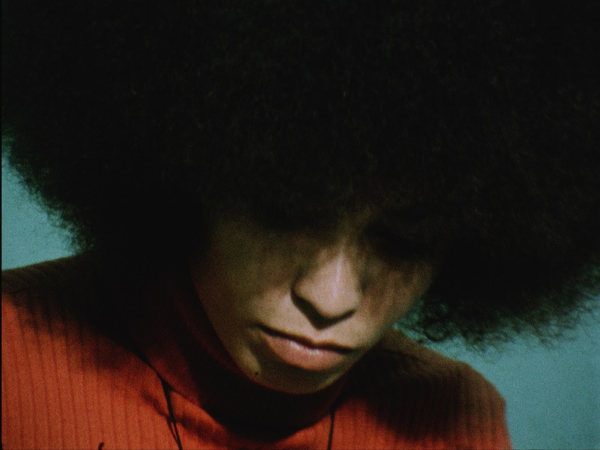Movie review by Greg Carlson
Composed of vivid 16mm film footage culled from dozens of hours of material that had been lying dormant in Sveriges TV (Sweden’s Television, a national multi-channel public broadcasting station), “The Black Power Mixtape 1967-1975” functions like a time capsule, teleporting viewers into the midst of America’s urban social chaos in the Vietnam War era. Assembled by Goran Hugo Olsson, the documentary reacquaints students of history with African American nationalism through interviews with several key figures associated with the Black Panthers. Additionally, the movie honors its title by tracking on the ravages of heroin in Harlem and other neighborhoods, the Nation of Islam, and the Attica Prison Riot, to name a few more of the movie’s broad-ranging interests.
Stokely Carmichael claims a critical role as one of the principal voices of the era, and the activist’s caustic wit emerges in several public addresses excerpted in the film. Most impressive, however, is a quieter moment when Carmichael sits down with his mother Mabel for an exchange in which the struggle against racism is illustrated with personal clarity. Carmichael is gentle but determined as he coaxes his mother to talk about her husband’s ongoing encounters with discrimination, and the scene shows Carmichael’s considerable skill as a master communicator.
Angela Davis is the other personality who emerges alongside Carmichael as the documentary’s “star.” Her 1972 interview from the Marin County Jail contains the most riveting on-camera response to questions posed about the movement’s willingness to reject Martin Luther King, Jr.’s peaceful resistance and entertain the necessity of violence. Davis says, “When someone asks me about violence, I just find it incredible. Because what it means is that the person asking that question has absolutely no idea what black people have gone through, what black people have experienced in this country since the time the first black person was kidnapped from the shores of Africa.”
In an interview with Channing Kennedy to promote the film, Olsson suggests that the language barrier of the original documentary crew contributed to the openness and generosity of subjects who might otherwise have declined to be photographed by white journalists. Whether this assertion is substantially true, the “lack of knowledge” (Olsson’s words) of the filmmakers in the various situations they covered infuses the movie with a strong sense of fundamental rhetorical explanation of positions that terrified the likes of Richard Nixon, J. Edgar Hoover, and other representatives of the white establishment.
“The Black Power Mixtape 1967-1975” makes serious its commitment to vintage visual design, withholding any images of the contemporary commentators whose voices provide thought and perspective on the archival documentation that unfolds. Musicians Erykah Badu, Ahmir “Questlove” Thompson, and Talib Kweli are joined by poets, scholars, and activists, and while their thoughts make important links between today and the four-decade-old content, the long-neglected interviews – from the famous and the anonymous alike – feel every bit as fresh. Olsson has stated that only two images contained in the film are not from the original period, and the absence of new footage gives the movie an undiluted purity that can only be found in the commemorative – a reminder that “this happened.”
